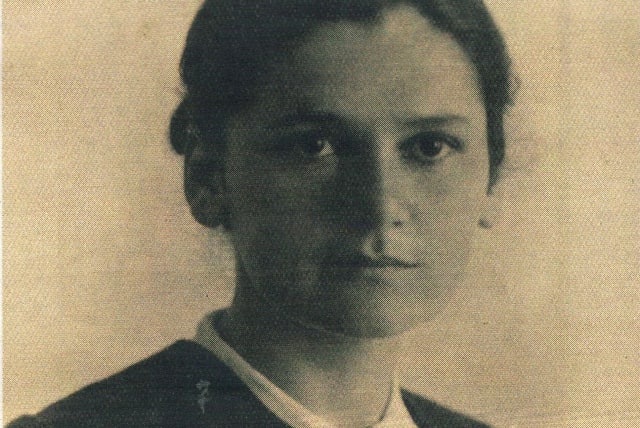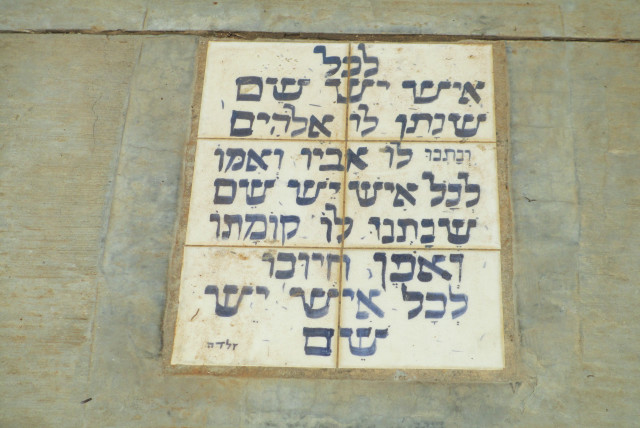The legacy of Zelda: Israel's legendary poet - opinion

Zelda was a devout Jewess, a cousin of the late Lubavitcher Rebbe. Her full name was Zelda Shneerson Mishkowsky, but she only ever went by Zelda.
She was a small lady, usually dressed in black. She called herself by only one name… Zelda, but it was enough, for she became a lyrical poet, known and loved throughout Israel. Zelda was awarded the Prime Minister’s Creativity Prize in 1974, and was named “Woman of the Year” in 1978 when she also received the Bialik Prize for Hebrew poetry. She died in 1984, at the age of 72, leaving behind a rich legacy of poetry that echoes the melody of the Psalms.
Zelda was a devout Jewess, a cousin of the late Lubavitcher Rebbe. Her full name was Zelda Shneerson Mishkowsky. She was born in the Ukrainian town of Chernigov in 1912, but came to the Holy Land with her parents in 1926 and never left Israel.
Her father was a rabbi and she described herself as “a hassid by temperament.” As a girl, she studied art in Tel Aviv, and later moved to Haifa, where she taught handicapped children. She married Haim Mishkovsky and their 20-year marriage was very happy.
The legendary Zelda: Israel's beloved poet
After she was widowed, Zelda continued teaching in Jerusalem, retiring after 50 years in the profession. All her life she found time to write poetry, no matter how hard she worked. Her sincere religious fervor did not prevent her studying modern Hebrew, Russian and European literature. She began composing poems as a teenager, but very few of those early poems were published at the time. Her first volume of collected poems only came out in 1968, followed by three more slim volumes.
What Zelda lacked in quantity, she made up for in quality. Critics acclaimed her “purity, precision and simplicity,” her “lyrical heights and spiritual depths.” She was different from most contemporary Hebrew poets, seeming to retain an innocence which many younger poets have lost.
Her poems were deeply religious in inspiration, and had that extra dimension of color and depth lent by the Land of the Bible. Some critics have compared Zelda’s poems to the language of Isaiah. She loved Jerusalem, and it was a recurring theme:
“I stood
in the midst of Jerusalem,
Jerusalem checkered in the sun,
smiling like a bride in the field,
slender green grass
by her side ….”
In her poem “A Place of Fire,” she again wrote of Jerusalem, describing it as:
“… the city
whose neck a loving prophet
adorned with sapphires,
turquoise and jacinth,
the silver tree-tops
tremble like my heart.”
Zelda spent her last years in a modest apartment in Jerusalem’s Kerem Abraham quarter. She alluded to it as:
“My house is built on the shore
I live on the edge of the moon
and of the stars
on the verge of dawns and sunsets.”
Although she came from such a famous Hassidic family, she was still very much part of the world, and had even appeared on television. However, the recognition and prizes that were heaped on her seemed to have very little significance to this spiritual and modest lady.
She used only the one name “Zelda” during her lifetime, and perhaps wrote her own obituary in her poem “Everyone has a name” which began with the lines:
“Everyone has a name
Given to him by God…”
And concluded:
“Everyone has a name
Given to him by the sea
And given to him
By his death.”
The writer is the author of 14 books; her latest novel is Searching for Sarah. dwaysman@gmail.com
Jerusalem Post Store
`; document.getElementById("linkPremium").innerHTML = cont; var divWithLink = document.getElementById("premium-link"); if (divWithLink !== null && divWithLink !== 'undefined') { divWithLink.style.border = "solid 1px #cb0f3e"; divWithLink.style.textAlign = "center"; divWithLink.style.marginBottom = "15px"; divWithLink.style.marginTop = "15px"; divWithLink.style.width = "100%"; divWithLink.style.backgroundColor = "#122952"; divWithLink.style.color = "#ffffff"; divWithLink.style.lineHeight = "1.5"; } } (function (v, i) { });

